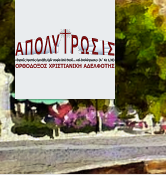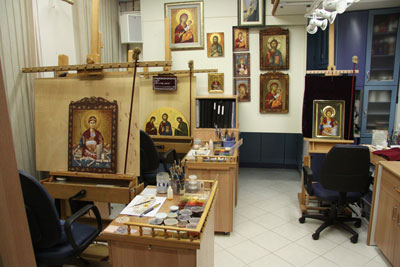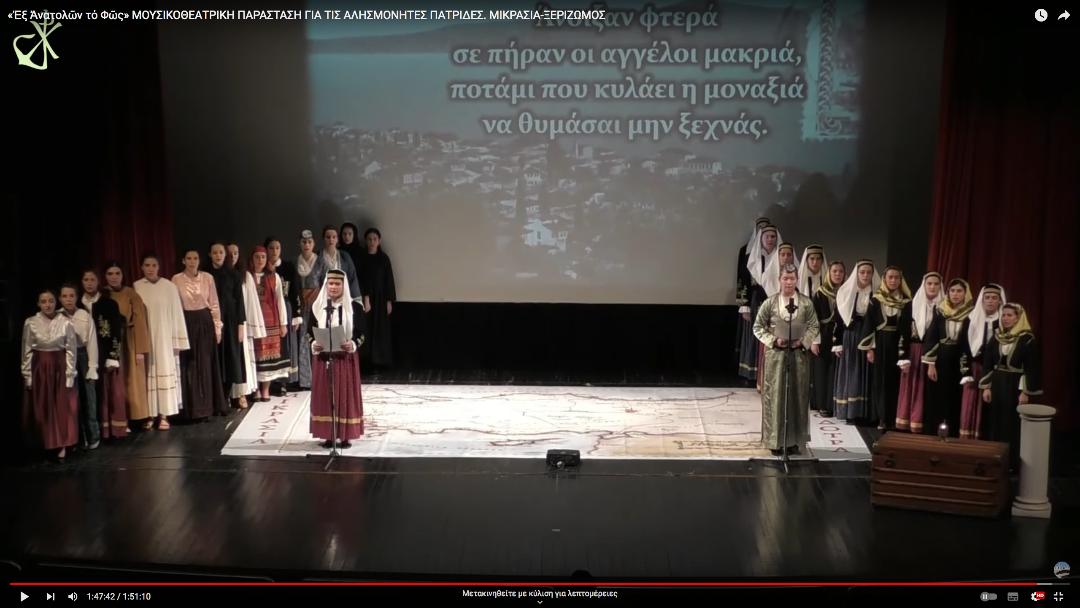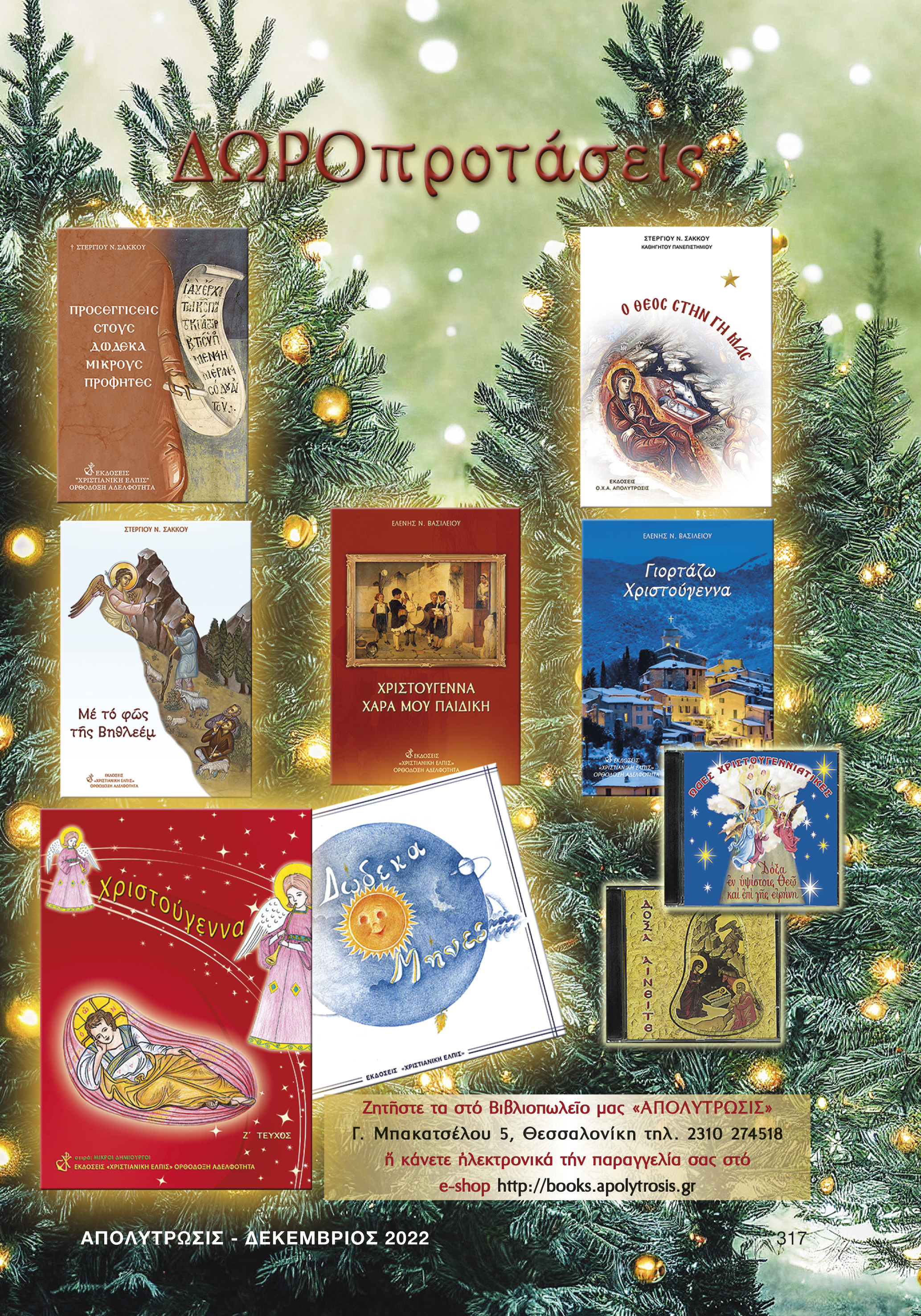 ΑΠΟΛΥΤΡΩΣΙΣ
ΧΡΙΣΤΙΑΝΙΚΗ ΟΡΘΟΔΟΞΗ ΑΔΕΛΦΟΤΗΣ
ΑΠΟΛΥΤΡΩΣΙΣ
ΧΡΙΣΤΙΑΝΙΚΗ ΟΡΘΟΔΟΞΗ ΑΔΕΛΦΟΤΗΣ
Super User
e) The Healing of Peter᾿s Mother-in-law (Lk 4:38-39)
Translation from the book:
Στεργίου Ν. Σάκκου, Ἑρμηνεία στό κατά Λουκᾶν Εὐαγγέλιο, τόμ. Α΄,
ἐκδ. «ΧΡΙΣΤΙΑΝΙΚΗ ΕΛΠΙΣ» ΟΡΘΟΔΟΞΗ ΑΔΕΛΦΟΤΗΤΑ, Θεσ/νίκη 2008, σσ. 197-200
(Stergios N. Sakkos [Read CV], A Commentary on the Gospel according to St. Luke, vol. A', pp. 197-200)
4,38. Ἀναστὰς δὲ ἐκ τῆς συναγωγῆς εἰσῆλθεν εἰς τὴν οἰκίαν Σίμωνος. Πενθερὰ δὲ τοῦ Σίμωνος ἦν συνεχομένη πυρετῷ μεγάλῳ, καὶ ἠρώτησαν αὐτὸν περὶ αὐτῆς.
4:38 And he arose and left the synagogue, and entered Simon’s house. Now Simon’s mother-in-law was ill with a high fever, and they besought him for her.
After the synagogue the Lord “entered Simon’s house”, went into Peter's house. He did not avoid visits to the houses of the disciples; St Chrysostom notes “was not ashamed to enter their huts”. Commenting on the event, the holy Father points out that Jesus honored the disciples by his visit. He moved their hearts and made them more sensitive. Moreover, he taught to all of us a lesson of humility, simplicity and tolerance.
Peter came from Bethsaida in Galilee, an insignificant town on the east bank of the Jordan, near the point where the river emptied in the Lake Gennesaret. Before his call to the apostolic office, he had made a family of his own and lived in the neighbouring city of Capernaum with his brother Andrew (see Mk 1:29).
“Simon” is the Hellenized form of the Hebrew "Simeon" (Acts 15:14). At that time the Greek language was very widespread in Palestine. Most of the Jews spoke Greek in addition to their mother tongue. That is why they also took Greek names (e.g., Philippos, Andreas) or Hellenized their Hebrew names (e.g. Jacob-Iakovos, Matatha-Mattheos, Mariam-Maria, Saul-Savlos). Simeon was called by the Lord "Cephas", a Hebrew word meaning Peter i.e., rock (see Mt 16:18). So, the Hebrew "Simeon the Cephas" is in Greek "Simon the Peter" (see Mt 10:2;16,17-18; Jn 1:41-43; 2 Pet 1:1).
The expression “was ill with a high fever” is a medical term. It is found in the writings of the physicians Hippocrates and Galen. Luke the physician also uses it in the Acts of the Apostles (see 28:8). The high fever determines the severity of the illness. Galen makes a clear distinction between "high" and "low" fevers. Luke's observation that the woman suffered from a high fever indicates that her condition was serious, posing a risk of death.
It is not mentioned who “besought him for her”, who begged the Lord for her healing. Apparently, her family and the disciples who were present - James and John, the sons of Zebedee, fellow countrymen and partners of Peter (see Mk 1:29) - begged Christ to heal her. When a sick person could not approach the Lord because of his sickness or even because of his ignorance or age, if he was not unbelieving, the Lord accepted for his sake the pleas of others. He accepted, for example, the request of a woman of Canaan for the healing of her daughter (see Mt 15:21-28).
St Chrysostom praises Peter's "modesty". While his mother-in-law had a high fever, he did not hurry to take Jesus home, but waited to complete his teaching and heal everyone else first. His attitude showed his respect for the Master and his kindness; he did not put his own needs before those of others.
4,39. Καὶ ἐπιστὰς ἐπάνω αὐτῆς ἐπετίμησε τῷ πυρετῷ, καὶ ἀφῆκεν αὐτήν· παραχρῆμα δὲ ἀναστᾶσα διηκόνει αὐτοῖς.
4:39 And he stood over her and rebuked the fever, and it left her; and immediately she rose and served them.
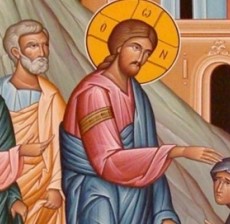 Jesus approached the sick woman, not to make a diagnosis, but to show his affection. The fever was rebuked and subdued, as the demon was rebuked before (see v. 35). Matthew (see 8:15) and Mark (see 1:31) note that the Lord also touched the hand of the sick woman (see comments on v. 40).
Jesus approached the sick woman, not to make a diagnosis, but to show his affection. The fever was rebuked and subdued, as the demon was rebuked before (see v. 35). Matthew (see 8:15) and Mark (see 1:31) note that the Lord also touched the hand of the sick woman (see comments on v. 40).
The sick woman was healed “immediately”. In fact, “she rose and served them”. This shows that Jesus healed her right away and perfectly, so that no time was needed for recovery. St. Theophylact observes "Not only does he heal her of the disease, but he also gives her strength and power to serve them".
Copyright © 2021 by Orthodox Christian Association «ΧΡΙΣΤΙΑΝΙΚΗ ΕΛΠΙΣ» ΟΡΘΟΔΟΞΗ ΑΔΕΛΦΟΤΗΤΑ. Used by permission. All rights reserved.
d) The Healing of the Demon Possessed Man in Capernaum (Lk 4:31-37)
Translation from the book:
Στεργίου Ν. Σάκκου, Ἑρμηνεία στό κατά Λουκᾶν Εὐαγγέλιο, τόμ. Α΄,
ἐκδ. «ΧΡΙΣΤΙΑΝΙΚΗ ΕΛΠΙΣ» ΟΡΘΟΔΟΞΗ ΑΔΕΛΦΟΤΗΤΑ, Θεσ/νίκη 2008, σσ. 191-196
(Stergios N. Sakkos [Read CV], A Commentary on the Gospel according to St. Luke, vol. A', pp. 191-196)
After his visit to Nazareth Jesus went to Capernaum. This city was an important trading center. In addition to the many residents, people from all over the province came there daily for various jobs. Capernaum thus provided suitable conditions for the preaching of the gospel to spread over a wide area. The evangelist Matthew describes it as his "own city" (9:1), because the Lord settled there and made it his base (cf. Mt 4:13. 23). During the three years of his preaching ministry, he was mainly confined to the region of Galilee, based in Capernaum, while he went to Judea only on the great feasts (see Jn 2:13; 5:1; 7:10; 10:22-23; 12:12), when many other Galileans went up there.
4,31-32. Καὶ κατῆλθεν εἰς Καπερναοὺμ πόλιν τῆς Γαλιλαίας, καὶ ἦν διδάσκων αὐτοὺς ἐν τοῖς σάββασι· καὶ ἐξεπλήσσοντο ἐπὶ τῇ διδαχῇ αὐτοῦ, ὅτι ἐν ἐξουσίᾳ ἦν ὁ λόγος αὐτοῦ.
4:31-32 And he went down to Capernaum, a city of Galilee. And he was teaching them on the sabbath days; and they were astonished at his teaching, for his word was with authority.
Luke uses the phrase “went down” for the passage from the one city to the other, for Nazareth was built on the mountain (see v. 29), while Capernaum was built at a lower elevation, by the lake of Gennesaret, on the borders of the tribes of Zabulon and Nephthalim (see Mt 4:13). Addressing the Gentile Christians, who did not know the geography of the region, he also gives the information that Capernaum was also a “city of Galilee”.
Jesus in the beginning was teaching in the synagogues “on the Sabbath days”, keeping the relevant commandment of the Decalogue; "Remember the Sabbath day, sanctify it" (Ex 20:8). Later, of course, he did not speak only in synagogues or only on the Sabbath day; he took advantage of every opportunity in every place, always causing the surprise and admiration of his audience for the power and authority of his sayings (see comments on 4:15).
4,33. Καὶ ἐν τῇ συναγωγῇ ἦν ἄνθρωπος ἔχων πνεῦμα δαιμονίου ἀκαθάρτου.
4:33 And in the synagogue there was a man who had the spirit of an unclean demon.
The word "spirit" in the Holy Bible has many meanings. It means the air, the soul, the mind, evil spirits, angels, the Holy Spirit, God. In this particular verse it is made clear that it refers to the “spirit of an unclean demon”. Demons are unclean spirits who rejoice in vile deeds and pollute the minds of men with evil thoughts. They have lost their first purity since they sided with Lucifer and opposed the works of the holy God. They completely dominate the human being whom they conquer by abolishing his personality and his will. They speak with his mouth. They act and manifest their power with his limbs, even performing miracles, such as oracles or cures. The possessed under the influence of demons behave like madmen, they are wild and dangerous.
In the days of Jesus' public ministry there were many demon-possessed people in Palestine. The Son of God came into the world "he might destroy the works of the devil" (1 Jn 3:8), and Satan used his powers to prevent him. Especially after his humiliation in the wilderness, he seemed that he had gathered all his troops in order to overcome his invincible opponent. The final frontal conflict, of course, took place on the cross.
4,34. καὶ ἀνέκραξε φωνῇ μεγάλῃ λέγων. ῎Εα, τί ἡμῖν καὶ σοί, Ἰησοῦ Ναζαρηνέ; Ἦλθες ἀπολέσαι ἡμᾶς; Οἶδά σε τίς εἶ, ὁ ἅγιος τοῦ Θεοῦ.
4:34 and he cried out with a loud voice. “Ah! What have you to do with us, Jesus of Nazareth? Have you come to destroy us? I know who you are, the Holy One of God.”
It may cause some concern that a man with an unclean spirit was present in the synagogue. Probably he had entered without being noticed or perhaps he had no demonic manifestations for a long period of time, giving the impression that he was healthy. Jesus’ presence, however, disturbed the demon and under its influence, the possessed man “cried out with a loud voice”, burst into loud cries.
The word “ἔα” (imperative of the verb "ἐάω-ῶ", which means "to leave") was used as an exclamation of surprise or displeasure, like the one we use “a!” or “ah!” Here denotes the displeasure of the demon. He was disturbed by the presence of Jesus, he was afraid and cried out. The expression “what have you to do with us” is stereotypical (cf. Judg 11:12; 2 Sam 16:10; 1 Kings 17:18; 2 Kings 3:13; Mt 8:29; Jn 2:4). Its meaning is determined by the relationship, affinity or difference that exists between the persons involved. In this case the demon with terror asked, "Is there any problem between us, Joshua Nazarene? We do not hurt you, we do not bother you. Why do you bother us? Have you come to destroy us?" Although the demon knew that Jesus was not born in Nazareth, he called him “Nazarene”, wanting to mislead the people who were waiting for the Messiah from Bethlehem. As noted elsewhere (Mt 8:29; Mk 5:7; Lk 8:28), the demons considered it a disaster not only to be destroyed but also to be removed from the possessed man. Because they would be no longer able to harm him and would be deprived of their greatest satisfaction. For the exact Messianic title, the Son of God, by which the demon addressed Jesus, see the comments on the corresponding "Son of God" of verse 4:3.
4,35. Καὶ ἐπετίμησεν αὐτῷ ὁ Ἰησοῦς λέγων· φιμώθητι καὶ ἔξελθε ἐξ αὐτοῦ. Καὶ ῥῖψαν αὐτὸν τὸ δαιμόνιον εἰς τὸ μέσον ἐξῆλθεν ἀπ᾿ αὐτοῦ, μηδὲν βλάψαν αὐτόν.
4:35 But Jesus rebuked him, saying, “Be silent, and come out of him!” And when the demon had thrown him down in the midst, he came out of him, without doing him any harm.
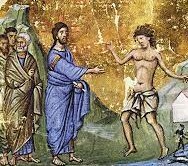 Jesus rebuked the demon, and commanded it to be silent and depart. He did not accept his revelation. Luke writes below that the Lord, as the absolute master of his work and plan, would not allow the demons to "advertise" Him; and would not allow them to speak" (v. 41). The same tactics were subsequently followed by the apostles. They did not accept the slightest service from the demons (see Acts 16:16-18).
Jesus rebuked the demon, and commanded it to be silent and depart. He did not accept his revelation. Luke writes below that the Lord, as the absolute master of his work and plan, would not allow the demons to "advertise" Him; and would not allow them to speak" (v. 41). The same tactics were subsequently followed by the apostles. They did not accept the slightest service from the demons (see Acts 16:16-18).
The evangelist emphasizes that the demon left, without harming the man at all. This, indeed, had made a very vivid impression on those present, for they had expected to see the possessed man dead or even wounded. The evangelist Mark, who also described the incident, noted that the demon "threw down the man and made him roll" (1:26) and came out of him. The Lord let the demon's wickedness show, but did not allow it to harm the man in the least, thus revealing his power and mercy.
4,36-37. Καὶ ἐγένετο θάμβος ἐπὶ πάντας, καὶ συνελάλουν πρὸς ἀλλήλους λέγοντες· τίς ὁ λόγος οὗτος, ὅτι ἐν ἐξουσίᾳ καὶ δυνάμει ἐπιτάσσει τοῖς ἀκαθάρτοις πνεύμασι, καὶ ἐξέρχονται; Καὶ ἐξεπορεύετο ἦχος περὶ αὐτοῦ εἰς πάντα τόπον τῆς περιχώρου.
4:36-37 And they were all amazed and said to one another, “What is this word? For with authority and power he commands the unclean spirits, and they come out.” And the fame of him went out into every place of the country round about.
The people were astonished and talked among themselves about the miraculous authority and power Jesus’ word; he commanded the unclean spirits and they immediately obeyed and departed!
After the demon-possessed man was healed, the fame of Jesus spread like lightning; “And the fame of him went out”. His word that had driven away the demon echoed like a resounding echo “into every place of the country round about”, in every town and village of Galilee.
Copyright © 2021 by Orthodox Christian Association «ΧΡΙΣΤΙΑΝΙΚΗ ΕΛΠΙΣ» ΟΡΘΟΔΟΞΗ ΑΔΕΛΦΟΤΗΤΑ. Used by permission. All rights reserved.
c) Jesus in Nazareth (Lk 4:16-30)
Translation from the book:
Στεργίου Ν. Σάκκου, Ἑρμηνεία στό κατά Λουκᾶν Εὐαγγέλιο, τόμ. Α΄,
ἐκδ. «ΧΡΙΣΤΙΑΝΙΚΗ ΕΛΠΙΣ» ΟΡΘΟΔΟΞΗ ΑΔΕΛΦΟΤΗΤΑ, Θεσ/νίκη 2008, σσ. 183-191
(Stergios N. Sakkos [Read CV], A Commentary on the Gospel according to St. Luke, vol. A', pp. 183-191)
Jesus' visit to Nazareth is recounted in detail by the evangelist Luke, while the other evangelists mention it briefly (see Mt 13:53-58; Mk 6:1-6).
4,16. Καὶ ἦλθεν εἰς τὴν Ναζαρέτ, οὗ ἦν τεθραμμένος, καὶ εἰσῆλθε κατὰ τὸ εἰωθὸς αὐτῷ ἐν τῇ ἡμέρᾳ τῶν σαββάτων εἰς τὴν συναγωγήν, καὶ ἀνέστη ἀναγνῶναι.
4:16 And he came to Nazareth, where he had been brought up; and he went to the synagogue, as his custom was, on the sabbath day and he stood up to read.
Jesus was born in Bethlehem, but after his return from Egypt he settled and lived in Nazareth; for this reason, he was given the nickname "Nazarene" (Mt 2:23). At the beginning of his public ministry, and after having previously preached and worked miracles in the greater region of Judea and Galilee, “he came to Nazareth, where he had been brought up”. He wished to visit his countrymen, to pay tribute to the place where he had been brought up; St. Theophylact writes "that he may teach us, first to benefit and teach our familiar persons and then to pour out charity to others.".
In Nazareth he went to the synagogue, “as his custom was”, on the Sabbath day. It was Jesus’ custom, all the time he was in Nazareth, to go to the synagogue every Sabbath. This habit of his shows that it is a God-pleasing act to attend the sacred assemblies of the believers.
In the synagogue the speakers read the passage standing up, thus expressing their respect for the sacred text. Jesus, who for years had been a mere listener and learner in that place, rose as a teacher this time to read, “he stood up to read”, and then he boldly preached to his countrymen.
4,17. Καὶ ἐπεδόθη αὐτῷ βιβλίον Ἠσαΐου τοῦ προφήτου, καὶ ἀναπτύξας τὸ βιβλίον εὗρε τὸν τόπον οὗ ἦν γεγραμμένον.
4:17 And there was handed to him the book of the Prophet Isaiah and opening the book, he found the place where it was written.
The books of that time were in the form of a roll, which was kept in a scroll. The whole Old Testament was contained in twenty-two scrolls. The servant of the synagogue gave to the Lord “the book of the Prophet Isaiah”, that is, the corresponding scroll. The Lord unrolled the roll and found the scheduled passage of the day; it was the first two verses of the 61st chapter of Isaiah's prophecy.
4,18-19. Πνεῦμα Κυρίου ἐπ᾿ ἐμέ, οὗ εἵνεκεν ἔχρισέ με, εὐαγγελίσασθαι πτωχοῖς ἀπέσταλκέ με, ἰάσασθαι τοὺς συντετριμμένους τὴν καρδίαν, κηρῦξαι αἰχμαλώτοις ἄφεσιν καὶ τυφλοῖς ἀνάβλεψιν, ἀποστεῖλαι τεθραυσμένους ἐν ἀφέσει, κηρῦξαι ἐνιαυτὸν Κυρίου δεκτόν.
4:18-19 "The Spirit of the Lord is upon me, because He has anointed me. He has sent me to preach the gospel to the poor, to heal the brokenhearted, to announce release to the captives and recovery of sight to the blind, to send away free those whom tyranny has oppressed, to preach the acceptable year of the Lord”.
The passage which Jesus read in the synagogue of Nazareth concerned the person of the Messiah, the salvation and the glory which he would offer to God's people. The Messiah spoke with the mouth of the prophet Isaiah and said, "The Spirit of the Lord is upon me, because He has anointed me.” In him the Holy Spirit rests and makes him the above all and sole "Christ". His mission was summarized as follows:
a) “He has sent me to preach the gospel to the poor”; he brings a message of happiness to the poor, that is, to the humble and despised who seek God and await divine redemption.
b) “to heal the brokenhearted”; he gives healing to those who are broken-hearted, to the desperate and disappointed.
c) “to announce release to the captives”; he preaches deliverance from the yoke of the captivity of Satan and sin.
d) “recovery of sight to the blind”; he gives to the blind a light, both natural and spiritual.
e) “to send away free those whom tyranny has oppressed”; he gives forgiveness, healing and restoration to the broken and weary, to the failed people. He gives them hope and opens a way out of their deadlock.
It is noteworthy that the Lord formulates the fifth goal of his mission using a passage from an earlier chapter of Isaiah (see 58:6) and not from the specific passage (Is 61:1-2), which he used for the other goals. As the owner and possessor of the Holy Scriptures, he could, of course, use them freely. Finally, in the next sentence he summarizes all the aims of his mission.
f) “to preach the acceptable year of the Lord”; He preaches the jubilee year of God. Every fifty years the Jews proclaimed with trumpets and drums the beginning of the jubilee year, during which debts were cancelled, slaves were freed, and fields were left uncultivated (see Lev 25:8-13). The purpose of this feast was to maintain equality among the Israelites and to keep the land fallow. It was a foretaste of the Messianic era, when the faithful would enjoy fatherly goodness, which forgive sins, free them from their passions, give them light and spiritual restoration, true rest and peace.
4,20. Καὶ πτύξας τὸ βιβλίον ἀποδοὺς τῷ ὑπηρέτῃ ἐκάθισε· καὶ πάντων ἐν τῇ συναγωγῇ οἱ ὀφθαλμοὶ ἦσαν ἀτενίζοντες αὐτῷ.
4:20 And rolling up the book, he returned it to the attendant, and sat down; and the eyes of all in the synagogue were fixed on him.
After the reading of the passage, the Lord “rolling up the book”, rolled up the roll-book, and “he returned it to the attendant” after returning it to put it back to its place (see comments on 4:15), “sat down”; only during the reading was the reader to remain upright. Jesus' stature, the way in which he read the passage - his fame had already preceded him - attracted the attention of all. Thus “the eyes of all in the synagogue were fixed on him”, all fixed their gaze on him.
4,21. ῎Ηρξατο δὲ λέγειν πρὸς αὐτοὺς ὅτι σήμερον πεπλήρωται ἡ γραφὴ αὕτη ἐν τοῖς ὠσὶν ὑμῶν.
4:21 And he began to say to them, “Today this scripture has been fulfilled in your ears.”
With clarity and simplicity, the Lord interpreted the prophecy he read, assuring that it is fulfilled “today” in his person. He is not merely "the Lord's anointed" but "Christ the Lord" (see Lk 2:11); he does not need to be anointed, because - already from the hour of his incarnation - he has all the Holy Spirit as a God-man, equal and of the same substance to the Father and the Paracletus (see comments on 4:1). Isaiah's prophecy is the Messiah’s proclamation. As Jesus applies it to himself, he reveals that he is:
a) the teacher who by his wisdom will teach the truth and deliver men from ignorance, fallacy and pain;
b) the high priest who by his sacrifice will redeem the world from sin, decay and death;
c) the king who by his power will create an eternal kingdom, in which the faithful will enjoy the happiness of the Messianic age.
4,22. Καὶ πάντες ἐμαρτύρουν αὐτῷ καὶ ἐθαύμαζον ἐπὶ τοῖς λόγοις τῆς χάριτος τοῖς ἐκπορευομένοις ἐκ τοῦ στόματος αὐτοῦ καὶ ἔλεγον· οὐχ οὗτός ἐστιν ὁ υἱὸς Ἰωσήφ;
4:22 And all were attesting about him, and wondered at the gracious words which proceeded out of his mouth; and they said, “Is not this Joseph’s son?”
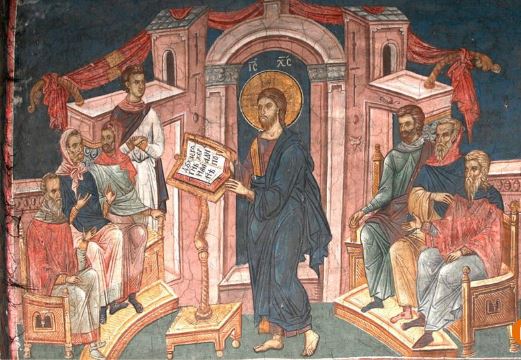
4,23. Καὶ εἶπε πρὸς αὐτούς· πάντως ἐρεῖτέ μοι τὴν παραβολὴν ταύτην· ἰατρέ, θεράπευσον σεαυτόν· ὅσα ἠκούσαμεν γενόμενα ἐν τῇ Καπερναούμ, ποίησον καὶ ὧδε ἐν τῇ πατρίδι σου.
4:23 And he said to them, “Doubtless you will quote to me this proverb, ‘Physician, heal yourself; what we have heard you did at Capernaum, do here also in your own country.’”
The Lord who sees in the hearts knows the meditations of his countrymen. They were ready to tell him the parable, “the proverb” which was common among the Jews, but also among the Romans and the Greeks: “Physician, heal yourself”. If you cannot perform also in Nazareth some of the signs you did in Capernaum, so that you may help yourself and free yourself from the contempt of your countrymen, how do you claim that you will heal others by applying to yourself "heal the brokenhearted"?
The Lord, however, performed signs only for the believers, who could reap some benefit from them. He refused to make a sign in his village because he discerned the unbelief of the Nazarenes; he did not want to win their faith in a dynamic and impressive way. He confined himself to reminding them of the prophecy, so that by combining it with what they knew of his person, they might understand who he really was. On the other hand, while they had all the evidence that should lead them to sincere admiration, they expressed contempt for him. Thus, the wickedness of the inhabitants of Nazareth was revealed (cf. Jn 1:47).
4,24. Εἶπε δέ· ἀμὴν λέγω ὑμῖν ὅτι οὐδεὶς προφήτης δεκτός ἐστιν ἐν τῇ πατρίδι αὐτοῦ.
4:24 And He said, “Truly, I say to you, no prophet is acceptable in his own country”.
Beginning with “Truly” Jesus gives solemnity to his word. The proverb he mentioned, "no prophet is acceptable in his own country," was also applicable to the prophets of the Old Testament (see Jer 11:21). In a small society it is easier for the personality of a stranger to stand out. A well-known and familiar person is usually deprived of the honour due to him, because his superiority is not recognised, but on the contrary he provokes envy.
4,25-27. Ἐπ᾿ ἀληθείας δὲ λέγω ὑμῖν, πολλαὶ χῆραι ἦσαν ἐν ταῖς ἡμέραις Ἠλιοὺ ἐν τῷ Ἰσραήλ, ὅτε ἐκλείσθη ὁ οὐρανὸς ἐπὶ ἔτη τρία καὶ μῆνας ἕξ, ὡς ἐγένετο λιμὸς μέγας ἐπὶ πᾶσαν τὴν γῆν, καὶ πρὸς οὐδεμίαν αὐτῶν ἐπέμφθη Ἠλίας εἰ μὴ εἰς Σάρεπτα τῆς Σιδωνίας πρὸς γυναῖκα χήραν. Καὶ πολλοὶ λεπροὶ ἦσαν ἐπὶ Ἐλισαίου τοῦ προφήτου ἐν τῷ Ἰσραήλ, καὶ οὐδεὶς αὐτῶν ἐκαθαρίσθη εἰ μὴ Νεεμὰν ὁ Σύρος.
4:25-27 But in truth, I tell you, there were many widows in Israel in the days of Elijah, when the heaven was shut up three years and six months, when there came a great famine over all the land; and Elijah was sent to none of them but only to Sarepta, in the land of Sidon, to a woman who was a widow. And there were many lepers in Israel in the time of the prophet Eliseus; and none of them was cleansed, but only Naaman the Syrian.”
Jesus wanted to bring his countrymen to consciousness and repentance. That is why he talked to them severely, using two examples from the Old Testament, which interpreted his attitude towards them.
The first incident refers to the prophet Elijah (see 1 Kings 17:1-16; cf. Jas 5:17-18). In his days the sky closed and it did not rain for three years and six months. The drought affected the crops and there was a famine throughout the land. So then, while the foreign queen Jezebel was trying to mislead the Israelite people into idolatry, God sent the prophet Elijah “to Sarepta, in the land of Sidon”; he stayed in the house of a foreign widow and by a miracle he made the family's flour and oil not to run out. That was a turn towards the nations at the time of the strict nationalistic mindset of the Old Testament.
The second example concerns the prophet Elisha (see 2 Kings ch. 5). In his time there were many lepers (see 2 Kings 7:3), but of all of them only Naaman the Syrian, an idolater, was healed. God is just and is not influenced by persons. He makes miracles to those who show faith in his power, even if they are Gentiles. Jesus also met Gentiles with great faith. He admired and rewarded them (see Mt 8:10-15:28).
The two examples from the O.T. point out that;
a) The inhabitants of Nazareth were unworthy to see miracles, because of their stubborn disbelief.
b) The preaching of the gospel would embrace the Gentiles, not to be corrupted by them, but in order to convert them into believers, to Christianize them. This is the message which the evangelist Luke conveys with particular emotion and perseverance.
c) After his resurrection the Lord will leave not only his countrymen but also all Israelites and will turn to the Gentiles. The same is the meaning of "the sign of the prophet Jonas" (Mt 12:39-40; Lk 11:29-30), with which the Lord later threatened the hard-hearted scribes and Pharisees, who demanded a sign from him. This proclamation not only frightened but also angered the Jews, because they considered themselves to be the only and exclusive recipients of God's blessings.
4,28. Καὶ ἐπλήσθησαν πάντες θυμοῦ ἐν τῇ συναγωγῇ ἀκούοντες ταῦτα.
4:28 When they heard this, all in the synagogue were filled with anger.
Hearing Jesus’ last words, the Nazarenes were very angry. They could not bear his scrutiny. They demanded an exceptional favour from their countryman. Their behaviour proved that the Lord had dealt with them in a very right and just way. Zigavinos comments "From what they tried to do they showed themselves not to be worthy of signs and confirmed the Savior’s word".
4,29-30. καὶ ἀναστάντες ἐξέβαλον αὐτὸν ἔξω τῆς πόλεως καὶ ἤγαγον αὐτὸν ἕως ὀφρύος τοῦ ὄρους, ἐφ᾿ οὗ ἡ πόλις αὐτῶν ᾠκοδόμητο, εἰς τὸ κατακρημνίσαι αὐτόν· αὐτὸς δὲ διελθὼν διὰ μέσου αὐτῶν ἐπορεύετο.
4:29-30 And they rose up and led him out of the city, and led him to the brow of the hill on which their city was built, that they might throw him down the cliff. 30 But passing through the midst of them he went his way.
The anger of the Nazarenes was so intense that, although they were impressed by Jesus' teaching (see v. 22), they decided to avenge him immediately for the insult he gave them. So, they took him out of the city and led him “to the brow of the hill’, to the top of the mountain on which Nazareth was built, so that they could throw him down from there.
How the Lord escaped from certain death is not mentioned. Most likely, when they carried him to the edge of the cliff, their hands were paralyzed. Then Jesus passed “through the midst of them” and went away, like a king among the guards who made way for him, or like a victor among his defeated opponents.
Jesus was "guarded by the divinity united with him". He had the power to "lay down" his life or to "take it" when he himself wished (see Jn 10:18). He was, moreover, in the beginning of his preaching. He had not preached the word of truth yet, so it was not time to be led to death. Later on, there were some other attempts by his enemies to arrest him, but they failed, “because his hour was not yet come” (see Jn 7:30). Jesus marched towards his voluntary passion keeping a predetermined plan. He delivered himself into the hands of his enemies, when he felt it was the right time and finally, he gave up his spirit on the cross, saying, "It is finished" (Jn 19:30).
Copyright © 2021 by Orthodox Christian Association «ΧΡΙΣΤΙΑΝΙΚΗ ΕΛΠΙΣ» ΟΡΘΟΔΟΞΗ ΑΔΕΛΦΟΤΗΤΑ. Used by permission. All rights reserved.
b) The Beginning of Jesus’ Galilean Ministry (Lk 4:14-15)
Translation from the book:
Στεργίου Ν. Σάκκου, Ἑρμηνεία στό κατά Λουκᾶν Εὐαγγέλιο, τόμ. Α΄,
ἐκδ. «ΧΡΙΣΤΙΑΝΙΚΗ ΕΛΠΙΣ» ΟΡΘΟΔΟΞΗ ΑΔΕΛΦΟΤΗΤΑ, Θεσ/νίκη 2008, σσ. 179-183
(Stergios N. Sakkos [Read CV], A Commentary on the Gospel according to St. Luke, vol. A', pp. 179-183)
After the description of Jesus' temptations, the three synoptic evangelists recount the beginning of his public ministry in Galilee. From the evangelist John we learn that Jesus' public appearance in Judea (see 2:23) and a period of parallel activity with John the Baptist (see 3:22) preceded his public appearance in Galilee. Judea was abandoned by the Lord when the Baptist was imprisoned (cf. Mt 4:12; Mk 1:14), in order to eliminate the envy of the Pharisees, who were learning of the continued increase of his disciples (see Jn 4:1-3). According to St. John Chrysostom, the Lord, by his departure, also teaches us a prudent attitude towards temptations. The believer must not arrogantly challenge the devil, but avoid him as much as possible. The terrible thing is not to resist when temptation offends and to throw oneself into temptation. When you were baptized “you took up arms to fight and not to be inactive"!
Jesus’ first sermon is identical with the Baptist’s sermon; "repent: for the kingdom of heaven is at hand" (Mt 4:17; cf. Mk 1:15). Thus, as Zigavinos observes, the Lord wanted to honour John as his genuine emissary and forerunner. Moreover, he confirmed the need for repentance and the coming of God’s kingdom.
Long slavery to various conquerors had created in the pious Jews a strong desire to throw off the foreign yoke and to establish at last an earthly theocratic kingdom. This was what they expected from the Messiah, whom they were waiting for according to the prophecies of the Old Testament. Jesus, with his gospel, revealed that God’s kingdom differs from Jewish expectations and set the conditions of entry into it.
4,14. Καὶ ὑπέστρεψεν ὁ Ἰησοῦς ἐν τῇ δυνάμει τοῦ Πνεύματος εἰς τὴν Γαλιλαίαν· καὶ φήμη ἐξῆλθε καθ᾿ ὅλης τῆς περιχώρου περὶ αὐτοῦ.
4:14 Then Jesus returned in the Spirit's power to Galilee; and His fame spread through all the adjacent districts.
In the wilderness, where the Lord withdrew after his baptism, he crushed Satan as a man, without making use of his divine power. Then, after the temptations, he returned to Galilee “in the Spirit's power”, making the power of the Holy Spirit (cf. 4:1) most evident by his miraculous signs, which testified to his divine-human being.
As Luke begins to recount Jesus’ public ministry, he notes that his fame had already spread; “His fame spread through all the adjacent districts”. This reputation is due to the activity that Jesus had developed in Judea, which the synoptic evangelists presuppose. The evangelist John explains: “Then when he came into Galilee, the Galileans received him, having seen all the things that he did at Jerusalem at the feast: for they also went to the feast” (4:45). The evangelist Matthew also testifies to the spread of Jesus' fame throughout Galilee and the surrounding region (4:24).
4,15. Καὶ αὐτὸς ἐδίδασκεν ἐν ταῖς συναγωγαῖς αὐτῶν δοξαζόμενος ὑπὸ πάντων.
4:15 And he taught in their synagogues, being glorified by all.
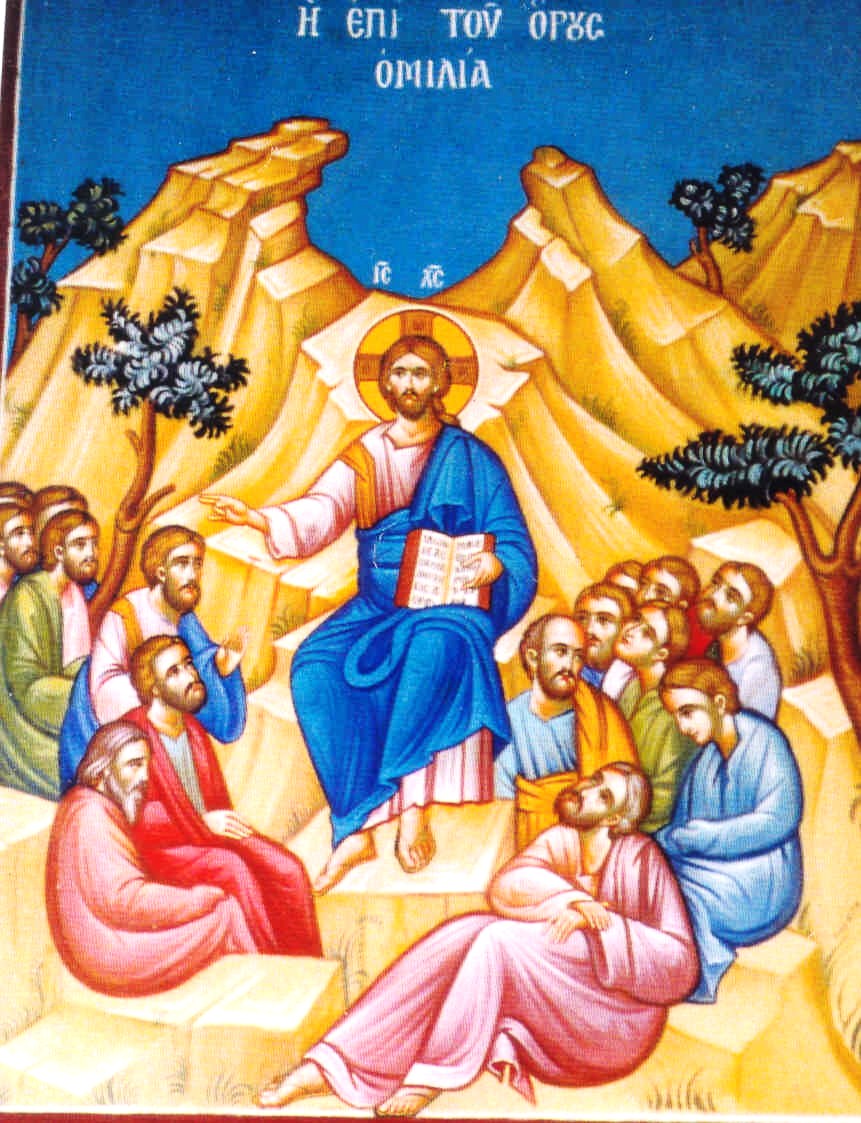 Jesus began his work of teaching in the synagogues. Just as the hunter goes to the lakes and rivers, where the animals go to drink water, to find their prey so Jesus goes to the synagogues to meet the faithful Jews, the remnant of Israel who came to quench their thirst with the divine water of his word. But he was not confined there. He preached on the hillsides of Galilee (see Mt 5:1) and in lowland places (see Lk 6:17), on the shores of Gennesaret (see Mt 13:1), on a boat (see Lk 5:3), by a well (see Jn 4:6e), in desert places (see Mt 14:13), in various houses (see Mk 2:1; 9:33; Lk 7:36; 10:38; 11:37; 14:1), in towns and villages (see Lk 8:1; 13:22), in the Temple of Jerusalem (see Mt 21:23; Jn 7:14; 8:20), in the upper room shortly before his arrest (see Jn chs. 13-17), even on the cross (see Lk 23:34. 43 etc.). For Jesus every place could become a pulpit.
Jesus began his work of teaching in the synagogues. Just as the hunter goes to the lakes and rivers, where the animals go to drink water, to find their prey so Jesus goes to the synagogues to meet the faithful Jews, the remnant of Israel who came to quench their thirst with the divine water of his word. But he was not confined there. He preached on the hillsides of Galilee (see Mt 5:1) and in lowland places (see Lk 6:17), on the shores of Gennesaret (see Mt 13:1), on a boat (see Lk 5:3), by a well (see Jn 4:6e), in desert places (see Mt 14:13), in various houses (see Mk 2:1; 9:33; Lk 7:36; 10:38; 11:37; 14:1), in towns and villages (see Lk 8:1; 13:22), in the Temple of Jerusalem (see Mt 21:23; Jn 7:14; 8:20), in the upper room shortly before his arrest (see Jn chs. 13-17), even on the cross (see Lk 23:34. 43 etc.). For Jesus every place could become a pulpit.
"Synagogue" was called the gathering of the Jews and the place of their gathering. The Jews had their only Temple in Jerusalem, where the sacrifices, offerings and promises to God were made. At the same time, however, the institution of the synagogue played an important role in religious life, especially in towns and villages where access to the Temple was not easy. In the synagogue the Jews gathered to hear God speak to them through his law. The Jewish synagogue was housed in simple halls, which were called synagogues or havres (safe places). There, in a special room, symbolically called the “ark”, they kept the precious scrolls of the Holy Scriptures wrapped in linen and leather casings. There was also a lectern or pulpit from which the texts were read and interpreted.
The Sabbath was the main day of assembly in the synagogue. The assembly began with the recitation of prayers and then the reading of the law. The first reading was from the Pentateuch and the second from the Prophets. After each reading there was an interpretation. The reader and interpreter of the texts could be any Jew. Usually, however, this work was carried out by the more educated, the scribes.
After the destruction of the Temple of Jerusalem, the synagogues acquired a special importance for the Jewish religion. They existed and still exist today, scattered all over the world. Through the word of the Old Testament, they prepared not only the Jews but also the Gentile converts for the coming of the Messiah, because like a magnet they attracted the best men in the pagan world. Moreover, these were the foundations, the suitable ground which the apostles used to establish and spread the Church of Christ.
Jesus “being glorified by all”. It was not only his miracles that caused the admiration of the people, but also his teaching, which was completely different from that of the scribes. Those carried to them the teachings of the rabbis, often burdened them with heavy loads, spoke to them about divine things without having experience themselves. Jesus, on the contrary, was a unique and unparalleled teacher in universal human history, both in the content and in the manner and in the authority of his teaching. The incident narrated by John is characteristic; when once the Pharisees and the chief priests sent their men to arrest Jesus, they returned empty-handed and confessed, "Never man spoke as this man" (Jn 7:46).
Jesus’ words were not even like those of the prophets. The prophets used to use the following expressions; "thus says the Lord", "the mouth of the Lord has spoken these things". Jesus taught with a divine authority (see Mt 7:29; Mk 1:22; Lk 4:32). In the Sermon on the Mountain he repeated; "You have heard that it came to the ancients... But I say unto you" (Mt 5:22. 28. 32. 34. 39. 44). To the reasonable question- “To the ancients, our ancestors, God spoke via Moses. Who are you who says these things?”, the Lord answered with the signs which he performed. He offered them as credentials of his divinity.
Copyright © 2021 by Orthodox Christian Association «ΧΡΙΣΤΙΑΝΙΚΗ ΕΛΠΙΣ» ΟΡΘΟΔΟΞΗ ΑΔΕΛΦΟΤΗΤΑ. Used by permission. All rights reserved.
a) The Temptations of Jesus (Lk 4:1-13)
Translation from the book:
Στεργίου Ν. Σάκκου, Ἑρμηνεία στό κατά Λουκᾶν Εὐαγγέλιο, τόμ. Α΄,
ἐκδ. «ΧΡΙΣΤΙΑΝΙΚΗ ΕΛΠΙΣ» ΟΡΘΟΔΟΞΗ ΑΔΕΛΦΟΤΗΤΑ, Θεσ/νίκη 2008, σσ. 167-179
(Stergios N. Sakkos [Read CV], A Commentary on the Gospel according to St. Luke, vol. A', pp. 167-179)
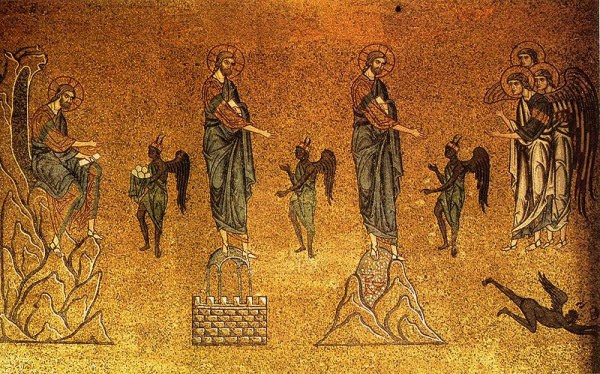 The temptations of Jesus (see Mt 4:1-11; Mk 1:12-13; Lk 4:1-13) are among the most difficult and theological themes of the Holy Scriptures. Careful study and divine enlightenment are required for their correct understanding and utilization in the spiritual struggle. First of all, it would be appropriate to give an answer to a crucial question: How did Satan tempt Jesus?
The temptations of Jesus (see Mt 4:1-11; Mk 1:12-13; Lk 4:1-13) are among the most difficult and theological themes of the Holy Scriptures. Careful study and divine enlightenment are required for their correct understanding and utilization in the spiritual struggle. First of all, it would be appropriate to give an answer to a crucial question: How did Satan tempt Jesus?
After the fall of Adam and Eve, the devil gained access to all their descendants. It is no longer possible for anyone to remain sinless, because the devil interferes in the world of every person's thoughts, will and feelings. Jesus, of course, was a God-man, a fact that the devil was unaware of. He saw him as a mere man, yet he could not penetrate him and tempt him with a thought or a sinful desire; therefore, he attacked him externally. He appeared before him either as a hideous figure or in the form of a human or an angelic being (see 2 Co 11:14) and tried to persuade Jesus by deceitful words in order to submit to his temptations.
4,1. Ἰησοῦς δὲ πλήρης Πνεύματος ἁγίου ὑπέστρεψεν ἀπὸ τοῦ Ἰορδάνου, καὶ ἤγετο ἐν τῷ Πνεύματι εἰς τὴν ἔρημον.
4:1 Then Jesus, full of the Holy Spirit, returned from the Jordan and was led by the Spirit in the wilderness.
The designation of being “full of the Holy Spirit” is also attributed to other persons in the New Testament; to the Baptist (see Lk 1:15), to Peter (see Acts 4:8), to Stephen (see Acts 6:5), to Barnabas (see Acts 11:24), to Paul (see Acts 13:9). All these were filled with the Holy Spirit’s gifts. But Jesus, as the God-man, had all the Holy Spirit his own (see comments on 2:11); he was inseparably united with the Paracletus, i.e. the Holy Spirit, as well as with the Father (cf. Jn 3:34-35). That is why he later assures his disciples that during his earthly life, as long as he was near them, the Holy Spirit was also near them; his promise that after his departure from this world he would send the Paracletus into their hearts means that he would then also dwell within them (see Jn 14:16-17.20).
When Jesus “returned from the Jordan”, after his baptism, “was led by the Spirit into the wilderness”, he was led into a desolate, uninhabited region by the prompting of the Holy Spirit. It is said that Jesus was "led", so that believers would learn not to expose themselves to temptation on their own.
The purpose of Jesus' sojourn into the wilderness, where he was "with the wild beasts" (Mk 1:13) was not only to prepare himself for the beginning of his work by quietness, prayer and fasting, but especially to confront the devil (see Mt 4:1). The wilderness is chosen as the site of the confrontation, because isolation is always the most fertile ground for the devil’s attacks. It is not accidental that even in paradise the devil approached Eve when he found her alone (see Gen 3:1).
4,2. ἡμέρας τεσσαράκοντα πειραζόμενος ὑπὸ τοῦ διαβόλου, καὶ οὐκ ἔφαγεν οὐδὲν ἐν ταῖς ἡμέραις ἐκείναις· καὶ συντελεσθεισῶν αὐτῶν ὕστερον ἐπείνασε.
4:2 for forty days tempted by the devil. And he ate nothing in those days; and when they were ended, he was hungry.
The Jews fasted during the day, and ate in the evening. Only on the feast of the Atonement their fasting lasted from the afternoon of one day until the afternoon of the next. Jesus, however, ate nothing throughout his sojourn in the wilderness (cf. Mt 4:2). After forty days, however, he was hungry, as St Andrew of Crete chants in the 9th Ode of the Great Canon. As a perfect man he had all the natural characteristics of human nature; hunger (see Mt 21:18), thirst (see Jn 19:28), sleep (see Mt 8:24), fatigue (see Jn 4:6). As a God-man, of course, he could have fasted more days. But he did not want to go beyond the limit of forty days, to which Moses (see Ex 34:28) and Elijah (see 1 Kings 19:8) had reached in the past, lest by surpassing human strength he would not be believed he was indeed a man. He did not fast, moreover, as God - as God He had no need of food or fasting - but as a man, in order to inspire temperance in people.
St. Chrysostom explains Jesus’ action with the following illustrative example: Coaches deliberately clash with others in the wrestling ring, in order to teach their trainees how to fight and defeat their opponents. So, Jesus was hungry and made his hunger known to the devil, in order to give him an excuse - the devil is used to take advantage of our weaknesses - to fight against him and to show how believers must face devil’s attacks, in order to defeat and overcome him.
In the patristic teaching it is emphasized that enslavement to the stomach is the root of a multitude of sins and is directly connected to man's exit from paradise. The doctor, after having cured the sick person, instructs him not to repeat the things from which the illness originated. Similarly, says St. Chrysostom, Jesus is fasting after baptism, because the sins before baptism were caused by the slavery to stomach.
4,3. Καὶ εἶπεν αὐτῷ ὁ διάβολος· εἰ υἱὸς εἶ τοῦ Θεοῦ, εἰπὲ τῷ λίθῳ τούτῳ ἵνα γένηται ἄρτος.
4:3 The devil said to Him, "If you are God's Son, tell this stone to become bread".
The devil, while he had a "file" on all humans, since they were all sinners, he had no "file" on Jesus. His sinlessness, as well as the events that accompanied his birth, had deeply troubled him. He also heard God the Father call him "a beloved son" (see Mt 3:17; Mk 1:11; Lk 3:22). He heard also the testimony of John the Baptist; "I have seen and I have borne witness that this is the Son of God" (Jn 1:34). But he could not understand in what sense he was called God’s son. He therefore sought to gather more information. So, taking advantage of Jesus' hunger, he asked him to prove that he was the son of God by performing a miracle, turning the stone into bread.
Later, many times the demons called Jesus "son of God" (see Mt 8:29; Mk 1:24; 5,7; Lk 4:34. 41; 8:28). This is the same trap that Satan set for him the first time in the wilderness, repeating what he had heard at the baptism, in order to unravel the mystery about Jesus. Christ’s divinity, however, remained unknown to the devil. Had he realized that he had God before him, he would never had prompted his people to crucify him. The Lord kept his plan for man's salvation secret (see Rom 14:24; Eph 3:9; Col 1:26).
4,4. Καὶ ἀπεκρίθη ὁ Ἰησοῦς πρὸς αὐτὸν λέγων· γέγραπται ὅτι οὐκ ἐπ᾿ ἄρτῳ μόνῳ ζήσεται ἄνθρωπος, ἀλλ᾿ ἐπὶ παντὶ ῥήματι ἐκπορευομένῳ διὰ στόματος Θεοῦ.
4:4 And Jesus answered him, saying; It is written that man shall not live by bread alone, but by every word spoken by God’s mouth.
Jesus did not use his divine power to resist temptation. He set forth the spiritual weapons, which every "good soldier of Jesus Christ" has at his disposal (2 Tim 2:3). By the "sword of the Spirit, which is the word of God" (Eph 6:17), by the word of the Holy Scriptures, he disarmed and humiliated the devil. He used the passage of the Deuteronomy (8:3), to emphasize that God has the power to sustain his creatures in life in a variety of ways. In the history of Israel, incidents are mentioned where God’s love was manifested in a miraculous way taking care for the sustenance of the people with special affection (cf. Ex 16:4-22; 1 Kings 17:2-16).
But also, in the New Testament the events of the feeding of the five thousand (cf. Mt 14:15-21; Mk 8:1-9; Lk 9:12-17; Jn 6:5-15) and the four thousand (cf. Mt 15:32-38; Mk 6:35-44) are characteristic, where the Lord interrupts the sermon to feed his audience, and even with a miracle. Moreover, in the Sunday prayer he included the request: " Give us this day our daily bread" (Mt 6:11). God is not indifferent to people's material needs. He does, however, desire the liberation of His devotees from material things (cf. Mt 6:25-34). Jesus, after his conversation with the Samaritan woman, reveals that his food is the fulfillment of the divine will and his holy mission (see Jn 4:34). To the members of the Church, Christ himself is offered as "the bread of life" (see Jn 6:32-58). Many saints, were nourished by the Word of God and the Sacrament of the Eucharist, overcame the sense of hunger and reached wondrous heights of exercise and continence-abstinence.
4,5. Καὶ ἀναγαγὼν αὐτὸν ὁ διάβολος εἰς ὄρος ὑψηλὸν ἔδειξεν αὐτῷ πάσας τὰς βασιλείας τῆς οἰκουμένης ἐν στιγμῇ χρόνου.
4:5 And the devil took him up, and showed him all the kingdoms of the world in a moment.
It is not mentioned how Satan carried Jesus from the wilderness to the high mountain and how he showed him the kingdoms of the whole world; certainly, in a supernatural way. Satan is a spirit and possesses supernatural power. It was not at all difficult for him to take his opponent to the highest peak of the mountain he was on or to take him to another mountain and surprise him by showing him all the kingdoms of the world in one moment, like in a movie. Jesus tolerates all this because he wants his confrontation with the devil to take place.
None of the evangelists record the name of the mountain, apparently, because they didn't find it noteworthy. Since the 12th century a tradition has developed which locates the place of the temptations between Jerusalem and Jericho, on the so-called Mount Sarantario. However, it is possible that Jesus was taken to Lebanon or elsewhere. The Gospel is not interested in satisfying human curiosity. It aims to teach the truth of salvation.
4,6-7. καὶ εἶπεν αὐτῷ ὁ διάβολος· σοὶ δώσω τὴν ἐξουσίαν ταύτην ἅπασαν καὶ τὴν δόξαν αὐτῶν, ὅτι ἐμοὶ παραδέδοται, καὶ ᾧ ἐὰν θέλω δίδωμι αὐτήν· σὺ οὖν ἐὰν προσκυνήσῃς ἐνώπιόν μου, ἔσται σου πᾶσα.
4:6-7 And the Devil said to him, "To you I will give all this authority and their glory, for it has been handed over to me, and I give it to whom I will. If therefore you will worship me, it shall all be yours”.
Satan is "the ruler of this world" (Jn 12:31; 14:30; 16:11), since people surrender their freedom and live in submission to his commands. He offered to Jesus authority and glory, and in return he asked him to kneel down to worship him, that is, to give him honor and worship that belongs only to God.
The devil usually does not directly demand that man cease to worship God. In a deceitful way he tries to persuade him to submit once to his own command. But if this happens, very quickly Satan becomes the sole and exclusive master and oppressor of man. The Lord’s word is clear: "No man can serve two masters: for either he will hate the one, and love the other; or else he will hold to the one, and despise the other. You cannot serve God and mammon. " (Mt 6:24; cf. Lk 16:13).
4,8. Καὶ ἀποκριθεὶς αὐτῷ εἶπεν ὁ Ἰησοῦς· ὕπαγε ὀπίσω μου, σατανᾶ· γέγραπται γάρ, Κύριον τὸν Θεόν σου προσκυνήσεις καὶ αὐτῷ μόνῳ λατρεύσεις.
4:8 And Jesus answered and said to him, “Go behind me, Satan: for it is written, you shall worship the Lord your God, and him only you shall serve.
Jesus, with disgust, rejected the insolent demand of the one he was talking to, saying, “Go behind me, Satan”. The way in which he addressed him shows that his opponent was not unknown to him. He is the objector -thus the name "Satan" is translated-, the one who opposes God’s will (cf. Mt 16:23). How was it possible for Jesus to kneel and worship his ancient enemy? To declare allegiance to him from whose bondage he came to free man? Later he would say it clearly to Pilate; "My kingdom is not of this world" (Jn 18:36).
So, he defeated the devil by using again a passage from Deuteronomy (6:13). The God-inspired word of the Holy Scriptures expressly commands; Worship and adoration are not fit for anyone but God. In obedience to this command, the Church from the very first beginning took the necessary steps and struck down the angel-worship that had begun to appear (Col 2:16-23), while at the same time it set honour, not worship, to the saints and angels.
Luke recounts as the second the temptation which Matthew mentions as the third. This difference, however, undeniably does not imply disagreement. It is well known (see comments on 1:1) that Luke does not follow a chronological order in his narratives.
4,9. Καὶ ἤγαγεν αὐτὸν εἰς Ἰεροσόλυμα καὶ ἔστησεν αὐτὸν ἐπὶ τὸ πτερύγιον τοῦ ἱεροῦ καὶ εἶπεν αὐτῷ· εἰ υἱὸς εἶ τοῦ Θεοῦ, βάλε σεαυτὸν ἐντεῦθεν κάτω.
4:9 And he took him to Jerusalem, and set him on the pinnacle of the Temple, and said to him, “If you are the Son of God, throw yourself down from here”.
The devil, finally, led Jesus to Jerusalem, "to the holy city", as Matthew (4:5) notes, addressing the Jewish Christians.
The edge of a roof is called a “pinnacle”, because of its shape. It probably belonged to the highest building of the Temple. Probably there was a cliff beneath it.
Repeating the phrase, "If you are the Son of God," the devil challenges Jesus a second time to give a proof of who he really was. It was possible, of course, that the devil had hoped that Jesus' fall would cause his death.
4,10-11. γέγραπται γὰρ ὅτι τοῖς ἀγγέλοις αὐτοῦ ἐντελεῖται περὶ σοῦ τοῦ διαφυλάξαι σε, καὶ ὅτι ἐπὶ χειρῶν ἀροῦσί σε, μήποτε προσκόψῃς πρὸς λίθον τὸν πόδα σου.
4:10-11 for it is written, “He will give his angels charge of you, to guard you, and on their hands they will bear you up, lest you strike your foot against a stone”.
Satan challenges Jesus to voluntarily throw himself from the pinnacle of the Temple, so that the angels may save him and thus offer an impressive spectacle to the people. Trying to imitate the Lord, he also uses a passage from the Psalms 91(90):11-12. However, he does not mention it in full, but omits the phrase: “in all your ways”. The passage does not refer personally to Jesus, but to every pious man who keeps God's commandments. The meaning is that God sends his angels to protect his own people in the course of their life, when they are in need. But divine help is offered to those who face a real need by faith, and not to those who willingly throw themselves into danger in order to test God’s power. The tactics of the ancient snake - already known since the fall of the first man and woman - to pervert God’s words are well known. The same tactics are followed by heretics; they cut off and trim the texts of the Holy Scriptures and thus distort their meaning.
4,12. Καὶ ἀποκριθεὶς εἶπεν αὐτῷ ὁ Ἰησοῦς ὅτι εἴρηται, οὐκ ἐκπειράσεις Κύριον τὸν Θεόν σου.
4:12 And Jesus answered him, “It is said, you shall not tempt the Lord your God”.
Jesus rebuts Satan with another passage from Deuteronomy (6:16). It is unacceptable for anyone to seek signs by tempting God, putting his providence and omnipotence to the test. This is how the Israelites had tempted the Lord in the wilderness and were severely punished for it! Only two of them, Joshua and Caleb, were considered worthy to see the fulfilment of God's promise, to enter the promised land (See Num ch. 14; cf. Heb 3:19)
4,13. Καὶ συντελέσας πάντα πειρασμὸν ὁ διάβολος ἀπέστη ἀπ᾿ αὐτοῦ ἄχρι καιροῦ.
4:13 And when the devil had ended every temptation, he departed from him for a time.
The devil wanted to strike the sinless Jesus with his three sharp arrows; gluttony, greed, vanity. These three great temptations include all the others. That is why the evangelist Luke writes that the devil went away, when “had ended every temptation”, after he had tried against his adversary every kind of temptation. After his departure, angels came to minister to Jesus, as Matthew (4:11) and Mark (1:13) note. St Chrysostom stresses to every struggling Christian "And you will be received by angels after your victory against him (the devil)". As long as the insult against him lasted, the Lord did not allow the angels to appear, so that Satan would not avoid the conflict with him.
The temporal expression “for a time” means that the devil went away but was determined to fight back, as soon as he found again a suitable opportunity. The objection, the doubt, the disapproval which Jesus faced throughout his public ministry are the temptations which Satan threw against him using men as his instruments. The Lord himself also referred to them, when later he said to his disciples, "You are they who have continued with me in my temptations" (Lk 22:28). The climax, of course, of the warfare and the final conflict was the Passion and the crucifixion. The glory of the Resurrection that followed revealed the defeat and the humiliation of Satan.
However, until his final crushing, the devil (see Rev 20:10) tries with deceitfulness to trap and distort the Church, which according to St Augustine, is Jesus "extending to the ages". The temptations which Satan uses against Church are similar to those which the Lord faced in the desert;
α) In its effort to take care of the material needs of the faithful, the Church risks falling into the trap of the devil; to be mainly absorbed in social, charitable and ecological work and to neglect its primary mission, that is, to nourish people with the Word of God and to vaccinate them with the Holy Sacraments.
b) It runs the risk of succumbing to the temptation of power. This truth is confirmed by the negative examples of the Western so-called Christian denominations. They wanted to assume secular power, as happened with Savonarola in Florence, Calvin in Geneva, or the Pope and the Vatican State and lost their primary mission and their spirituality. The Church has spiritual jurisdiction, not secular; its greatest strength is holiness.
c) It is often tempted to make its worship a spectacle, with the aim of impressing. However, such a tactic reduces the sense of deep piety and spirituality of the feasts and increases their secularity. "God is a Spirit: and they that worship him must worship him in spirit and in truth." (Jn 4:24).
Bread, power and entertainment are the three main temptations that believers struggle with in their personal lives as well. God’s eternal word commands a firm resistance to the temptations of the devil (see Jas 4:7; 1 Pet 5:8-9). And St Chrysostom recommends; We should not trust Satan at all, close our ears and hate him when he flatters us. And when he promises us great and important things, then we should even more abhor him... For he is a ruthless enemy and has undertaken an undeclared war against us. And the most terrible thing is that we do not care as much about our salvation as he does about our loss.
Copyright © 2021 by Orthodox Christian Association «ΧΡΙΣΤΙΑΝΙΚΗ ΕΛΠΙΣ» ΟΡΘΟΔΟΞΗ ΑΔΕΛΦΟΤΗΤΑ. Used by permission. All rights reserved.
NATIONAL CELEBRATION OF MARCH 25
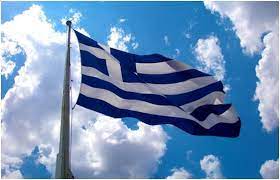
I LOVE GREECE!
Worksheet
Α. Write an acrostic poem using the word FREEDOM.
F
R
E
E
D
O
M
Β. Fill in the missing vowels and find the phrase:
G r _ _k h_r_ _s g_v_ fr_ _d _m t_ _ _r h_ m_l_nd _n 1821.
C. Match and make sentences:
1. The Greek revolution started and their country.
2. The children in Greece white and blue.
3. The Greeks loved God in land and sea.
4. The Greek flag is took part in the Revolution.
5. The Greeks fought went to the secret schools.
6. Men and women in Zaloggos.
7. Women wanted to die free in Agia Lavra.
D. Choose and write the heroes:
KANARIS, SO LO MOS, KOLOKOT R ONIS, MAKRYGIANNIS, BYRON, KAPODISTRIAS, MPOUMPOULINA
1. He was the first Prime Minister of Greece:
2. He is our national poet:
3. He is the most famous Greek hero:
4. A famous British poet who helped the Greeks:
5. She was a Greek fighter from Hydra:
6. He burnt the Turkish ships in Psara:
7. We read his writings about the Greek Revolution.
E. Fill in with the correct answer:
(Hydra, st Kosmas Aitolos, cross, Souli, Zakynthos, Dervenakia, free)
1. …………………………….. helped the Greeks to make schools.
2. Andreas Miaoulis was from ………………………………….
3. Tzavellas was a hero in ………………………………………...
4. The Greek flags had the …………………………….. on them.
5. Solomos was born in …………………………………………….
6. Kolokotronis fought in …………………………………………
7. The Greek fighters fought so we can live ……………….
Jacob
Translation from the Book
Ὁ Θεός στήν Παλαιά Διαθήκη, Βοήθημα Κατωτέρου Κατηχητικοῦ Α΄,
ἐκδ. «Χριστιανική Ἐλπίς» Ὀρθόδοξη Ἀδελφότητα, Θεσσαλονίκη 2015, σσ. 60-65
Genesis 25:19-34; chs 27-33
The faithful Abraham miraculously had a son, Isaac, in his old age. After that, he lived many more years with God's blessing and enjoyed his son’s marriage. Isaac married the pious Rebekah. She was from Mesopotamia -Abraham's homeland- and believed in the one true God. But she couldn't have a child. They were childless. Rebekah and Isaac prayed fervently. They both asked God for a miracle, just like Abraham and Sarah. God heard their prayer. Rebekah gave birth to two twin boys, Esau and Jacob.
Esau was born first; therefore, he was called the “firstborn”. According to the customs of the time, he would inherit most of his father's property, and above all, he would receive, the most precious inheritance, that great blessing which God bestowed on Abraham: Ηis promise that all nations on earth would be blessed through his offspring, since Christ would come from his generation.
Esau was very glad that he was the firstborn because he would inherit his father's great property, his many animals and his vast fields. Jacob also wanted the birthright but not for the inheritance. He didn't care about that at all. He believed and loved God so much that he longed for His blessing; that special blessing that God gave to his grandfather Abraham and his father Isaac. Jacob valued this inheritance above all else.
One day Esau returned home from hunting. He was very hungry. He saw the steaming lentils that Jacob had cooked and said to him:
- Give me some of your food, for I am starving!
Jacob immediately seized the opportunity and answered him:
- Sell me your birthright today and I'll give you to eat.
- I am starving, and you are talking to me about the birthright! “What good is my birthright to me now?” Take it!
Esau replied, rashly and flippantly. He preferred to exchange God's blessing for a plate of hot lentils!
God was displeased by Esau's behavior. And He did not give him His blessing. Instead, He gave it to Jacob for his great faith. How? When Isaac was an old man, at an age when he could not see well, instead of giving his blessing to Esau, he gave it to Jacob.
Esau became angry, because he thought he would lose his father's property. He even wanted to kill his brother. Jacob, however, having God's great blessing, quitclaimed the fields and the livestock to Esau and went away from him.
He walked alone with a stick in his hand. But God was with him. He never leaves the faithful alone. He revealed Himself in a miraculous way in order to give Jacob courage.
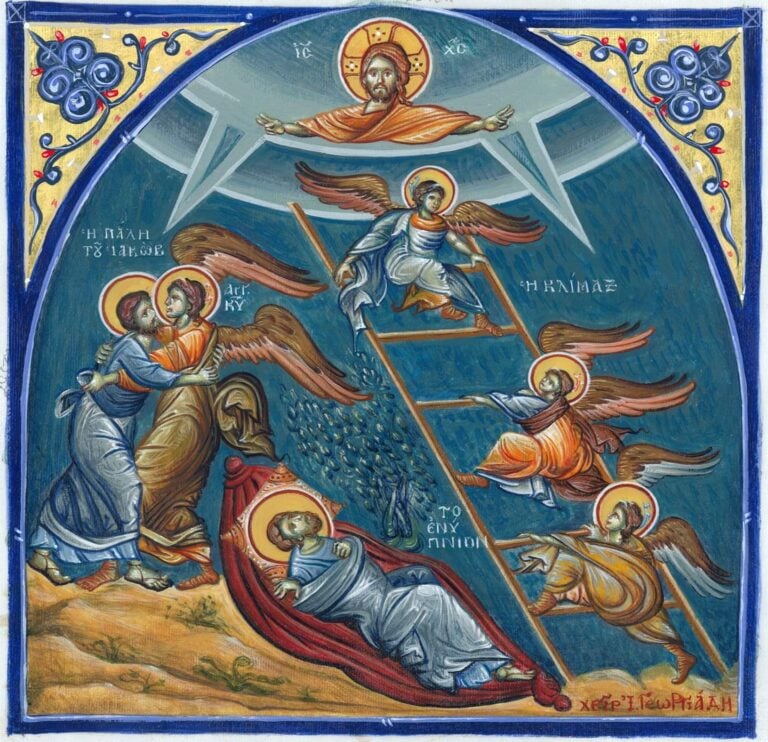 When he reached a certain place, he stopped for the night because the sun had set. Taking one of the stones, he put it under his head as a pillow and lay down to sleep. He had a dream in which he saw a stairway resting on the earth, with its top reaching to heaven. God’s angels were ascending and descending on it. He heard a voice saying: “I am the God of your father Abraham and the God of Isaac. I will give you and your descendants the land on which you are lying. Your descendants will be countless like the sand. All people on earth will be blessed through you and your offspring. I will be with you and watch over you wherever you go. I will help you return to your homeland one day.”
When he reached a certain place, he stopped for the night because the sun had set. Taking one of the stones, he put it under his head as a pillow and lay down to sleep. He had a dream in which he saw a stairway resting on the earth, with its top reaching to heaven. God’s angels were ascending and descending on it. He heard a voice saying: “I am the God of your father Abraham and the God of Isaac. I will give you and your descendants the land on which you are lying. Your descendants will be countless like the sand. All people on earth will be blessed through you and your offspring. I will be with you and watch over you wherever you go. I will help you return to your homeland one day.”
When Jacob woke up, full of awe, he thought, “Surely the Lord is in this place and I was not aware of it. This is God’s house, since this is the gate of heaven.” He prayed there and continued his journey courageously. He felt safe because he was sure that God was with him.
He went to Mesopotamia and stayed there for many years. He worked hard with his uncle Laban. He raised a family, had many children and a large fortune. One day he decided to return with his family to his homeland, Canaan. But he was worried about his brother: Would Esau accept him? Would he still be angry? However, he trusted God and started the journey of return with his whole family. He always remembered God’s promise, that one day He would bring him back to his homeland. God, who watched over faithful Jacob, encouraged him in a strange way.
One night, a stranger appeared before Jacob and began to wrestle with him. They fought all night long until the morning. Then the stranger stopped fighting and said to Jacob: “From now on your name will not be Jacob but Israel, which means “strong”. You have shown your strength tonight. You have fought with God and defeated him!”
God allowed this strange struggle to assure Jacob that He was with him and gave him His power. So, there was no reason to fear Esau. Indeed, with God’s help Jacob was able to reconcile with his brother. He settled again in the land of Canaan. And he remained faithful to the one and only true God, without being influenced by the pagans who dwelt around him. He worshipped God like his grandfather Abraham and his father Isaac. Therefore, he became a patriarch like them. Twelve tribes came from his twelve sons, forming a whole nation, known in history by three names: a) Hebrews; from Abraham's ancestor Eber, b) Israelites; from Jacob's second name “Israel” and c) Jews; from Jacob’s son Judah to whom God gave Abraham’s blessing. The Messiah, our savior Christ, was born from Judah’s descendants.
Strong with God
God rewards the faith of His children. Jacob believed and loved Him with all his heart, and God gave him His blessing, His living presence, His power! Ιf only we could always feel God beside us, too! If we have strong faith, we will see Him with the eyes of our soul (cf. Heb 11:1)! And then, we have nothing to fear. We can overcome all hardships and problems. With God beside us we are strong.
For example, a tree can be so small that you can grab it with your hands and pull it up. It will bend at the first gust of wind. But if its trunk is tied to a sturdy stake, the wind will not break it. It will stay upright. Just like that, everyone who is close to God, does not break down from the problems and difficulties.
God, who even takes care of the little birds, will never leave someone who believes and loves Him. He is our heavenly Father. When we face a failure, a family problem, an illness, we can find shelter in His arms. We can trust ourselves and our beloved ones in His mighty and tender hands!
Copyright © 2021 by Orthodox Christian Association «ΧΡΙΣΤΙΑΝΙΚΗ ΕΛΠΙΣ» ΟΡΘΟΔΟΞΗ ΑΔΕΛΦΟΤΗΤΑ. All rights reserved.
WORSHIP THAT PLEASES GOD
Translation from the article:
Εὐαγγέλου Ἀλ. Δάκα, Λατρεία εὐάρεστη στόν Θεό, περιοδ. "Ἀπολύτρωσις" 73 (2018) 104-166.
(Evangelos Al. Dakas, PhD in Theology and Philologist)
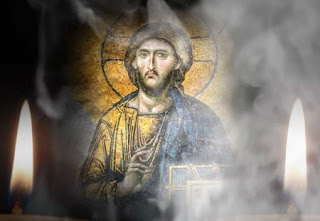 We Orthodox feel proud, and rightly so, about the spiritual magnitude of our worship. The Orthodox Church for God’s worship preserves, in this matter as well, the tradition of the holy Fathers, which has its roots in the apostolic era. Our worship does not try to impose itself on the believers and humiliate them before God’s omnipotence, as the Papists do. For the Orthodox Church, the Lord is not primarily a “mysterium tremendum” i.e., a mystery that causes terror but a “mysterium fascinosum”, a mystery that attracts love. Nor does it only teach, as is the case with Protestant worship. The Orthodox worship, on the one hand, incarnates the miracle of God's revelation in Christ here and now and on the other hand, makes the Lord's life, the Cross and his resurrection the existential identity of the believer.
We Orthodox feel proud, and rightly so, about the spiritual magnitude of our worship. The Orthodox Church for God’s worship preserves, in this matter as well, the tradition of the holy Fathers, which has its roots in the apostolic era. Our worship does not try to impose itself on the believers and humiliate them before God’s omnipotence, as the Papists do. For the Orthodox Church, the Lord is not primarily a “mysterium tremendum” i.e., a mystery that causes terror but a “mysterium fascinosum”, a mystery that attracts love. Nor does it only teach, as is the case with Protestant worship. The Orthodox worship, on the one hand, incarnates the miracle of God's revelation in Christ here and now and on the other hand, makes the Lord's life, the Cross and his resurrection the existential identity of the believer.
However, it is necessary to take certain things into serious consideration, since the spiritual alienation that threatens us now, also affects the life of worship:
1. The foundation of our worship cannot be other than Christ's words to the Samaritan woman that “God is Spirit, and those who worship him must worship in spirit and truth” (Jn 4:24). That is, our worship will be true and pleasing to God, if it will be first offered at the altar of our soul, at the shrine of the inner man which is not made by hand. When this does not happen, when the incense of our love for the Lord does not burn in our souls but sin smokes, all the other external offerings and sacrifices are in vain and they anger God. We find many examples of such vain worship in the people of Israel who, while blessed “in a shocking way” by Yahweh, deviated too many times into ritualism. Externally, they offered what the Mosaic Law defined, that is a multitude of bloody and bloodless sacrifices, but internally, in their hearts, they were indifferent to God. Other gods were worshiped there, their passions and desires. The Spirit of God through the prophet Isaiah says; “To what purpose is the multitude of your sacrifices to me?” “I have had enough of burnt offerings of rams and the fat of fed cattle.... When you spread out your hands, I will hide my eyes from you; Even though you make many prayers, I will not hear. Your hands are full of blood... Wash yourselves, make yourselves clean; Put away the evil of your doings from before my eyes.... Come now, and let us settle the matter” (Is 1:11. 15-16. 18). But Israel did not listen. They thought that by their sacrifices they would oblige God to help them. And in this way, they lost the divine adoption.
2. We must pay particular attention to another point, too. That is the manner of our worship. The priests Hophni and Phinehas, sons of the high Priest and Judge Eli, were exemplary punished by the Lord, because their behavior inside the Tabernacle was unacceptable (see 1 Sam 2:12-17, 22-36). Are we, priests and people, conscious of the sanctity of the church? Or do we often behave in this holy place, especially during the celebration of the Sacraments, as if we were in the marketplace? The fact that many times we do not understand what is being chanted or said, because the clergymen and chanters give more importance to the melody than to the meanings, also contributes to this situation. The apostle Paul faced a similar problem in the church of Corinth. In their worship gatherings, certain gifted people preached without explaining what they were saying. The result was that no one understood what was being communicated to them. In this way, no one benefited from it and the gathering resembled a madhouse. That is why the apostle took drastic measures (see 1 Cor 14). We often give emphasis to unnecessary luxury in our churches. Expensive vestments, coverings and objects that may provoke the faithful and give justification to the non-believers to accuse and mock the Church. Saint John Chrysostom emphasizes “The Church is not a goldsmith's shop or a silversmith's shop, but angels’ feast ... That table was not silver then, nor was made of gold the cup from which Christ gave his disciples his blood; but all those were precious and dreadful because they were filled with the Holy Spirit.” The holy Father says again that we do not honor the Lord's sacrifice when we offer him gold objects but when we offer him our souls made of gold, because he was sacrificed for our souls.
3. Finally, Saint James the brother of God says that the worship that pleases God must have as a foundation the love for our brothers and purity, without worldly blemishes. “Pure and undefiled religion before God and the Father is this: to visit orphans and widows in their affliction, and to keep oneself unspotted from the world.” (Jas 1: 27). If we worship God but are indifferent to the sorrow and sufferings of our brothers and sisters, we are deceiving ourselves. The Lord showed by his word and his example that all those who suffer are Jesus himself “in another form”. So how is it possible to worship him and turn our backs on him at the same time? Also how is it possible to worship God and at the same time blemish ourselves with the filth of the “antichrist” world? “Adulterers and adulteresses!” Saint James says again, “You adulterous people, don't you know that friendship with the world means enmity against God? Therefore, anyone who chooses to be a friend of the world becomes an enemy of God” (Jas 4: 4).
The heart of Orthodox Christians’ life is to worship both with the Gospel and the Sacraments. Without them the believers die, their spirituality dies. We, therefore, have a duty towards the Church, for which Christ was sacrificed, to protect it from any alteration and corruption and to keep it pure. Divine Worship is the Lord himself present in our lives.
Copyright © 2021 by Orthodox Christian Association «ΧΡΙΣΤΙΑΝΙΚΗ ΕΛΠΙΣ» ΟΡΘΟΔΟΞΗ ΑΔΕΛΦΟΤΗΤΑ. Used by permission. All rights reserved.
